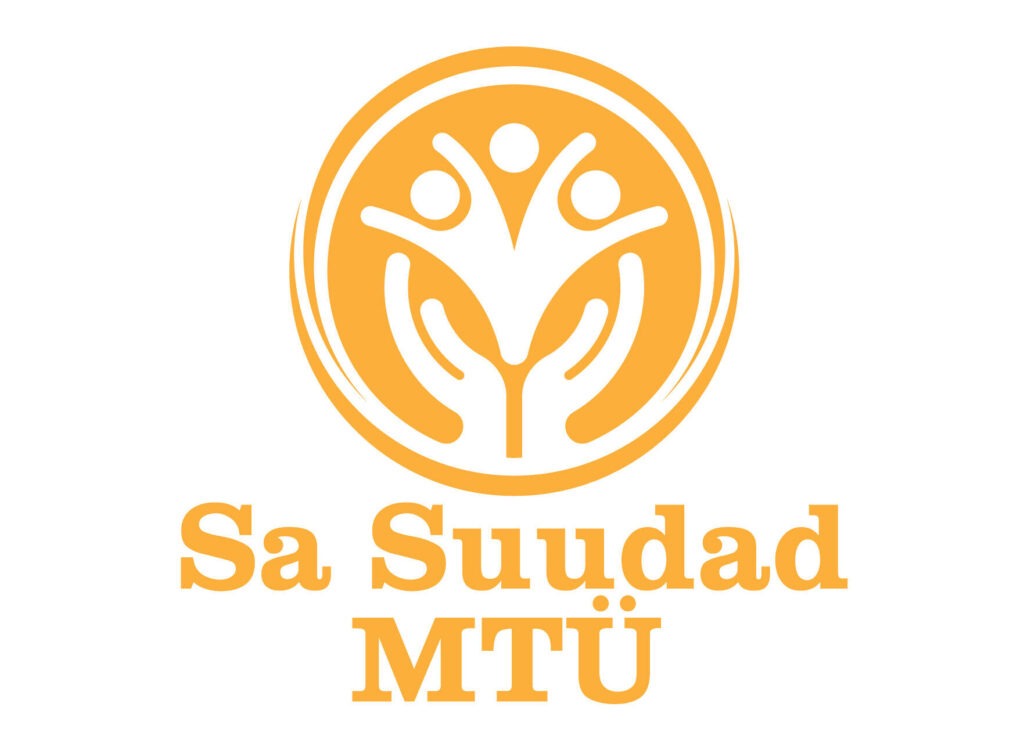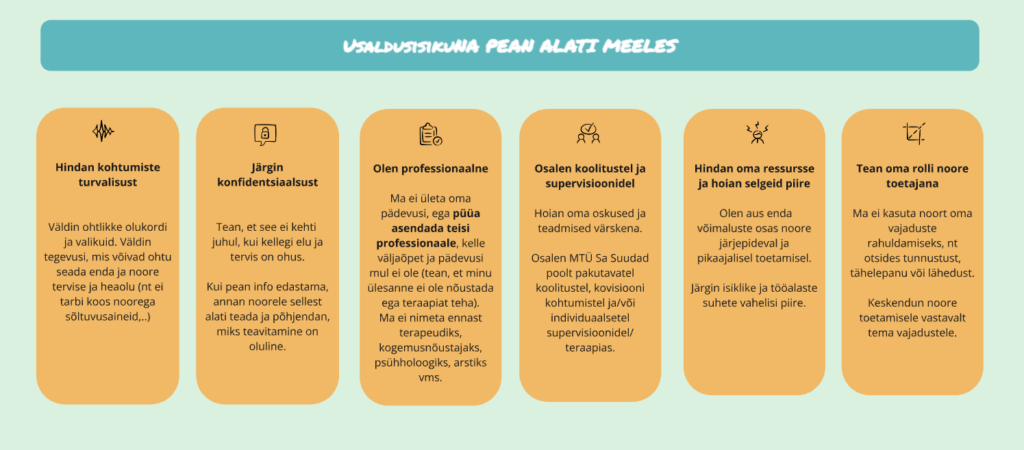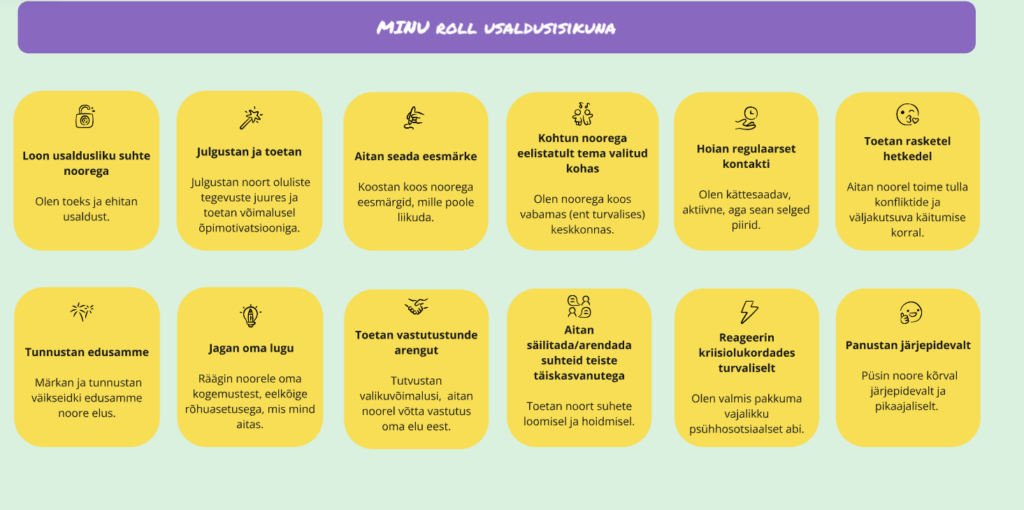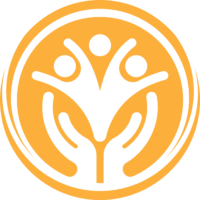Experienced Trustee Program

Target group
Young people aged 10–18 who exhibit high-risk behavior, i.e., constant violence directed at themselves and/or others.
Target group concerns
Few positive experiences with adults and/or peers
Self-regulation skills need support
Adults' disapproval of their way of spending time and communicating
They are not listened to, understood, or accepted.
In addition feelings of pain, loneliness, fear, hopelessness


Value proposition
We give you the opportunity to be heard, seen, and accepted by someone who truly understands what you are going through.
Program content
The work of an experienced confidant with young people combines emotional support, empowerment, and guidance. A confidant helps young people to cope better with themselves, their relationships with others, and other aspects of life (school, leisure activities). A confidant helps young people through spending time together consistently develop self-regulation skills and hope for a better future. The role of the trusted person is to act as a bridge between the young person and other adults/specialists, i.e. to help encourage the young person to accept support and assistance from other specialists (e.g. child protection services, therapists, school staff, etc.) if necessary.
Experienced trustees
Young adults (aged 19-39) who have experienced difficulties in life, i.e., who have engaged in high-risk behavior at some point. An experienced mentor is a trained and supported young person who, in turn, offers support to other young people through understanding and sharing their experiences that led to change.
An experienced confidant has gone through difficult periods in their own life, which means they are better able to understand young people, gain their trust, and act as a bridge to other necessary support services.
The goal of the program
Through consistent support of a trusted person, young people strengthen their self-regulation skills, grow in confidence in themselves and others, including specialists, and improve their relationships with family and friends – which helps to reduce risky behavior.
What have we done so far?
- Interviews with young people. In total, we conducted over 10 interviews with young people (aged 14-26) who have engaged in or are currently engaging in risky behavior. The purpose of the interviews was to better understand the experiences, expectations, and needs of young people, including ways of obtaining help.
- Interviews with experience counselors. We conducted a total of four interviews with experience advisors with the aim of understanding what experience advising looks like today and what is important to keep in mind when developing the program ourselves.
- Mapping the client journey. We mapped the journey of the target group (young people), the peer mentors, and the NGO at a general level, from joining the program to actual program activities. We familiarized ourselves with existing similar programs both in Estonia and abroad, discussed with experts from Estonia and Finland in the field, and read and analyzed a significant amount of academic literature.
- Workshopid noortega. We met repeatedly with seven young people who wish to become trusted representatives in the future. We introduced them to insights from interviews, the idea behind the trusted representative program, the program's fundamentals, and its vision. Together with the young people, we created a role description and value proposition for a trusted person, and mapped out the skills, knowledge, and personal qualities necessary to be a trusted person.
- A prototype of an experienced trustee program has been created, including basic principles, description of the role of the trustee, value proposition, description of the trustee's profile (including skills), training methodology and content prototype, description of the trustee support system, steps for recruiting trustees, initial impact assessment methodology.


What else needs to be done?
- Consultation with the target group of the program and validation of different parts of the program
- Develop a comprehensive impact assessment strategy
- Developing a comprehensive training program for trustees
- Finding initial partners (with whom to pilot the project)
- Find funding to pilot the program
- Finding experienced trustees and training them (DONE)
- Kogemustega usaldusisikutele mentorite leidmine (Oled huvitatud? Kandideeri SIIN)
Märts 2025
Completion of the NULA program
Applying for funding from KÜSK
Märts – September 2025
Pilot preparation
- Finding trusted individuals
- Training of trustees (August 2025–December 2025)
September -Detsember 2025
Preparations
Training of trustees
Updating the trustee program with potential trustees
Finding partners, including young people, for piloting
Preparation of impact assessment
Jaanuar 2026 – Juuni 2027
Piloting
Implementation and continuous evaluation of the pilot program, including adjustments if necessary
